The altar of the Cathedral of Monaco © Edm
Religion has been an integral part of human history throughout the ages, and this holds true for Europe’s microstates: Monaco, Andorra, Liechtenstein, San Marino, Malta and the Vatican.
Alternately exerting power and banished, acting as a vital determinant in public affairs and confined to the private domain, religion has shaped our history. The question then arises: how has religion influenced the so-called microstates?
Throughout history, political entities have consistently encompassed a multitude of local rulers, small kingdoms, principalities, duchies, local lordships and counties. These entities have often exhibited distinct characteristics such as close-knit, family-based, and even military structures.
Almost all of these organisations were gradually erased by the course of medieval history. However, a handful have managed to endure, and their remarkable age, resilience, and longevity is worthy of admiration. Against all odds, these minuscule economic and political entities have persevered throughout the ages, even though a mere backhanded blow from their larger neighbouring states could easily eradicate them from the European map indefinitely.
Rather than being hindered by their small size, these microstates appear to flourish, boasting robust economies and a notable level of well-being among their populace. To unravel this intriguing phenomenon, it is necessary to delve into the historical background of these diminutive nations and analyse the pivotal events that have shaped their medieval and modern eras.
Numerous observers assert that religion plays a significant role in the contemporary success of these nations. However, how have they navigated the social and economic transformations triggered by globalisation? Have they reaped benefits or incurred losses as a result? These inquiries prompt us to contemplate the future role of religion within the structure of these microstates.
| KEY EVENTS AND DATES
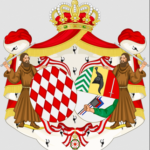 Principality of Monaco
Principality of Monaco
- Constitutional monarchy since 1911 (formerly an absolute monarchy)
- 2 square kilometres.
- GDP: €7.27 billion in 2021 (+21% compared to 2020)
- Religion: Catholicism (Article 9 of the 1962 Constitution – the current Constitution – specifies that the Catholic, Apostolic and Roman religion is the religion of the Monegasque State, which therefore aligns itself with its principles, and makes them its own)
- 1215: Part of the city of Genoa (Italy) before the arrival of the Grimaldi family
- 1314: Recognition of the authority of the Grimaldi family
- 1861: Proclamation of independence
- 1962: Establishment of a new constitution
- 1993: Becomes a member of the UN
- 2004: Joins the Council of Europe
- 2005: Enthronement of Prince Albert II
Principality of Liechtenstein
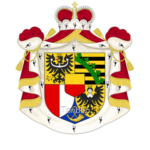
- Constitutional monarchy since 1719
- 160 square kilometres
- GDP: €6,74 billion in 2019
- Religion: Catholicism (According to Article 37 of the constitution, the Catholic Church of Liechtenstein has the status of National Church, protected by the state. The exercise of other denominations is also guaranteed by the constitution. In a survey conducted in 2015, 73,4% of the population self-identified as Catholic, 8.2% as Protestant, 5.9% as Muslim, 1.5% as other Christian denominations, and 0.8% as belonging to another religion. 10.3% gave no opinion)
- 1719: Becomes a principality by decision of King Charles VI
- 1806: Independence recognised
- 1989: Enthronement of Prince Hans-Adam II
- 1992: Integrates the European Economic Area
Principality of Andorra

- Representative democracy since 1993
- 464 square kilometres
- GDP: €3.1 billion in 2022
- Religion: 89.5% of the inhabitants of Andorra are Christians, with Roman Catholics (88.2%) making up the majority. About 1.7% practice another religion, while some 8.8% declare themselves non-religious
- 1278: A treaty of paréage establishes a co-principality
- 1993: Recognition of a parliamentary, constitutional co-principality
- 1993: Becomes a member of the UN
Republic of Malta
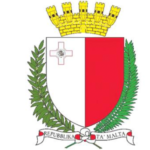
- Parliamentary democratic republic since 1974
- 316 square kilometres
- GDP: €16.9 billion in 2022
- Religion: Catholicism is the state religion, but Malta’s constitution provides for religious freedom
- 1798: Occupied by France
- 1814: Colonised by Britain
- 1974: Becomes a parliamentary republic
- 2004: Joins the EU
Each of these minuscule entities is located on the European continent.
| PRINCIPALITY OF MONACO
Take Monaco as an example, where a certain degree of formal oversight can be exercised in the realm of international relations. Until 2022, the Minister of State, who leads Monaco’s government was required to be a senior official of French nationality proposed by the French government. However, since the revision of the Monaco Constitution, it is now possible for the Minister of State to hold Monegasque nationality as well. Nevertheless, France retains the right of consultation in this regard.
Monaco’s uniqueness lies in its measured yet pragmatic approach to adapting religion to socio-economic developments. This balanced perspective is made possible by a keen understanding of unfolding events. The small size of the state undoubtedly facilitates this precise analysis of reality.
On the other hand, Liechtenstein, under the leadership of Prince Alois III, finds itself in a notably different situation. The Protestant faith advocates for a more equitable ecumenical distribution and a reduction in in the influence of the Catholic Church. Additionally, the Muslim community, estimated to comprise six percent of the population and with two “houses of prayer”, is advocating for the introduction of Islamic instruction in primary schools.
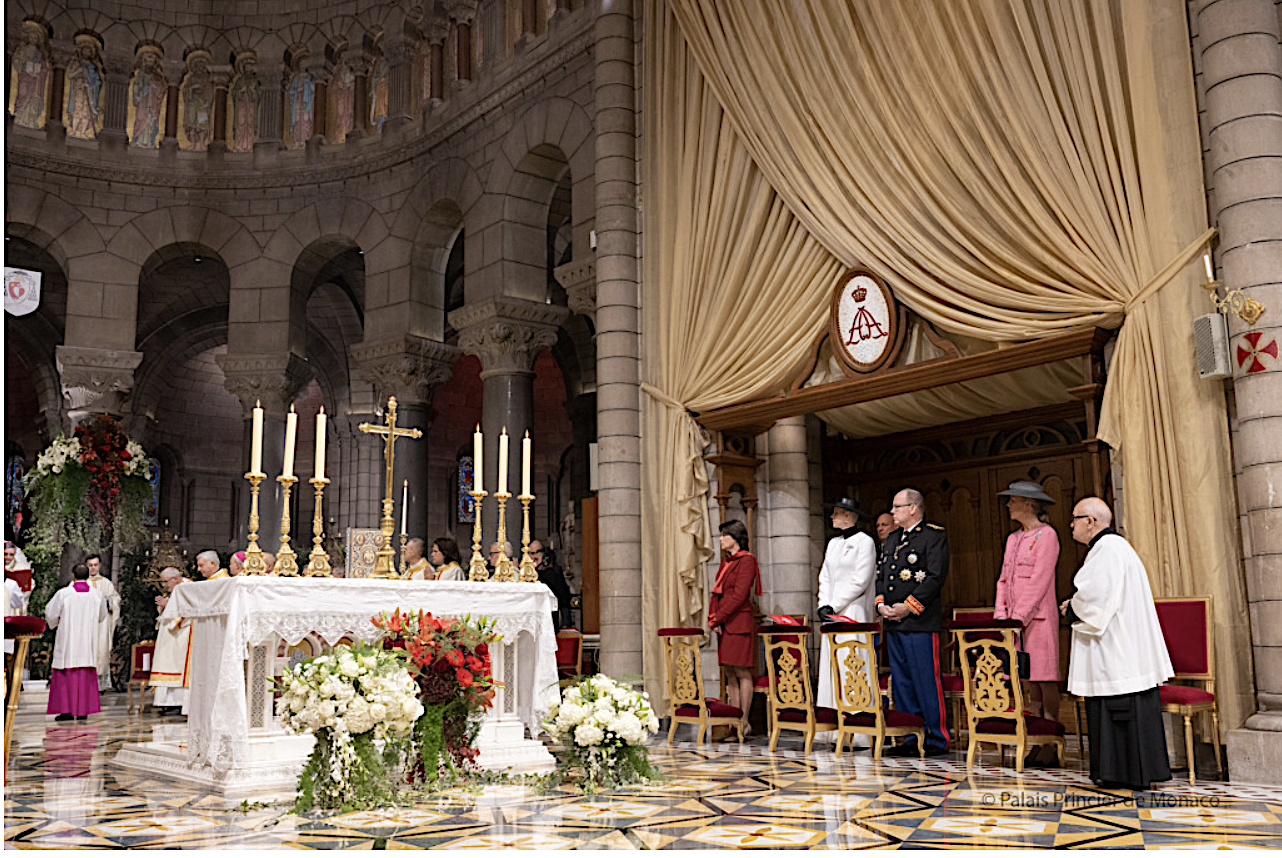
If the Monegasque population discreetly or strongly adheres to this system, it has a positive impact on the overall stability of the state, instilling confidence in its institutions and enhancing the quality of its banking and fiduciary reputation. Therefore, religion serves as a foundational factor shaping the geopolitical landscape of the microstate due to its enduring nature over time.
However, what about religious freedoms? In general, the practice of religions other than the predominant one within the microstate is minimal, inconspicuous and non-proselytising.
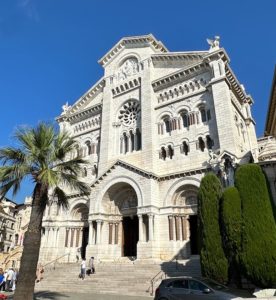
In Monaco, despite the Roman Catholic Apostolic faith being established as the state religion in the constitution, freedom of worship and its public practice are guaranteed. There are Anglican, Greek Orthodox and Romanian Orthodox communities, as well as a synagogue residing in Monaco. However, the Jehovah’s Witnesses Association is not present, and Hinduism and Islam are not represented.
Following the 1962 Constitution, the Principality transitioned from a “monarchy by divine right” to a “constitutional, hereditary monarchy”.
| REPUBLIC OF SAN MARINO
San Marino managed to evade Italian unification, while Andorra, Monaco and Liechtenstein also succeeded in preserving their independence. These states have maintained their political systems, which have existed for centuries, and they are predominantly principalities, except for San Marino, which holds the distinction of being the world’s oldest republic, with its border dating back to 1462.
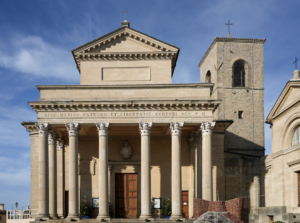
However, there were instances where the existence of these states was temporarily interrupted. For example, the papal States ceased to exist between 1870 and1929, which marked the establishment of the Vatican through the Lateran Treaty. Similarly, Monaco experienced a period of disappearance during the French Revolution when it was annexed by France in 1793.
In San Marino, approximately 92.3 percent of the population identifies as Catholic, with only 3 percent identifying as non-denominational. The predominance of the Catholic Church is evident in the architectural landscape of the Republic, featuring numerous churches and a monumental basilica. The territory of the Republic falls under the jurisdiction of the Diocese of San Mariono-Montefeltro, which also encompasses parts of neighbouring Italian provinces.
| VATICAN CITY and MALTA
Vatican City occupies a didtinct position of its own. With a population of only 825, it serves as the headquarters of the Catholic Church and the residence of the Pope. Due to the population primarily comprising individuals from ecclesiastical and diplomatic circles, the influence of global developments on the Vatican remains relatively limited. Conversely, the positions, opinions and views of the Pope on world affairs are closely analysed and scrutinised by journalists and political commentators. This widespread dissemination of Vatican messages is unparalleled, as the microstates do not possess the same level of influence in communication.
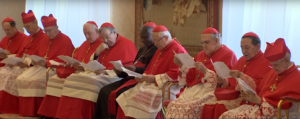
Malta, on the other hand, upholds religious freedom and safeguards this fundamental right. The legendary legacy of the Knights of the Order has long been intertwined with the history of Malta. While the Order was re-established in 1830, it now functions as a charitable organisation.
The “Order of Malta,” also known as the Order of the Knights of St John of Jerusalem, was established in 1113 to provide assistance to pilgrims in the Holy Land. Similar to the Knights Templar, it swiftly evolved into a military order with the purpose of defending the Latin states against the Muslim counter-offensive. Following the fall of St John of Acre in 1291, which marked the withdrawal of Christians from Palestine, the Hospitallers initially retreated to Cyprus and later settled in Rhodes in 1309. From that point onwards, they engaged in naval warfare against Islam, launching attacks on its coasts and ships throughout the Eastern Mediterranean.
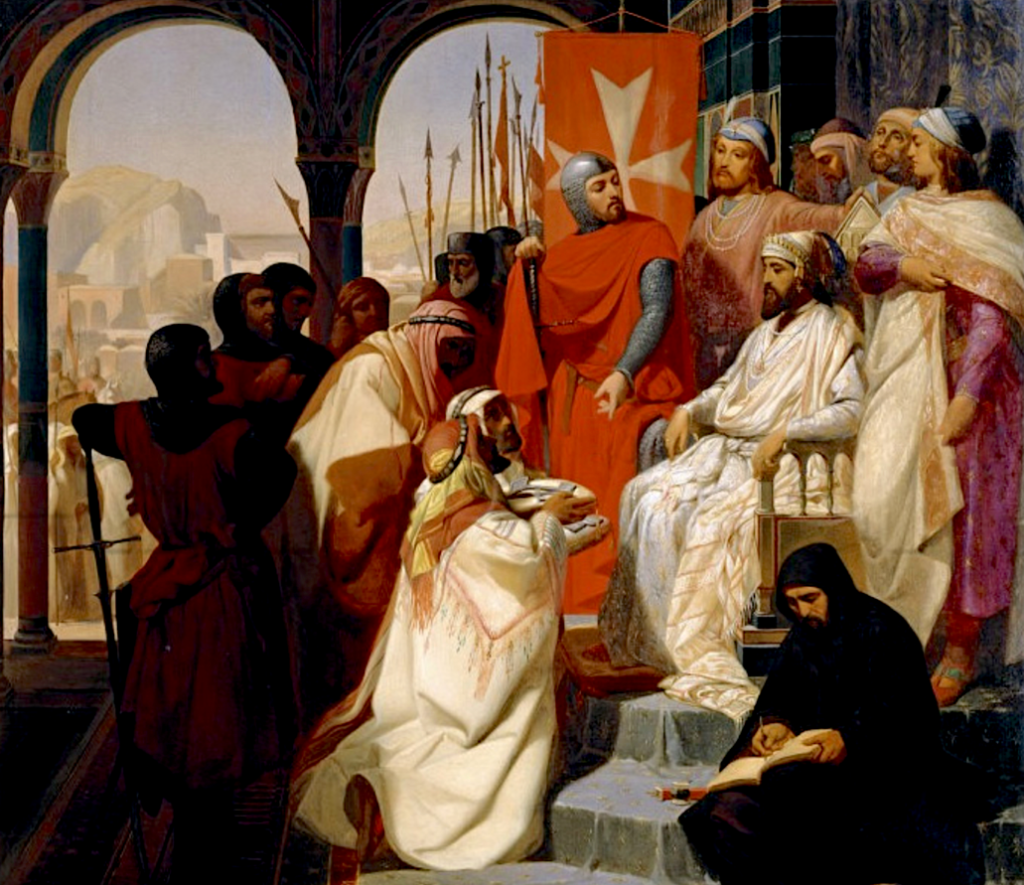
In 1522, the Knights of St. John endured a challenging siege, resulting in the conquest of Rhodes by the Ottoman Sultan, Suleiman the Magnificent. This event led to a prolonged period of displacement for the Knights until they found refuge in Malta. In 1530, Charles V, who was also the King of Sicily, granted the Knights a “noble and sovereign fief” in Malta.
Malta achieved independence from British rule in 1964; however, it chose to maintain Queen Elizabeth II as its sovereign. It wasn’t until ten years later that Malta became a fully separate republic, distinct from Britain. The British military presence persisted until 1979. Presently, Malta is a member of the Commonwealth.
Upon joining the European Union in 2004, Malta received funding aimed at improving urban planning and preserving its rich historical heritage.
Today, Malta is renowned not only a popular tourist destination but also an attractive and discreet tax haven for numerous companies seeking confidentiality in their financial operations.
Since the 13th century, Andorra, which is the last remaining feudal state in Europe, has functioned as a co- principality governed by the Bishop of Urgell and the President of the French Republic, who serves as the successor to the French King, inheriting the authority of the Count of Foix. In 1993, Andorra established its constitution to assert its independence from French tutelage, reflecting the growing trend towards greater sovereignty among small states.
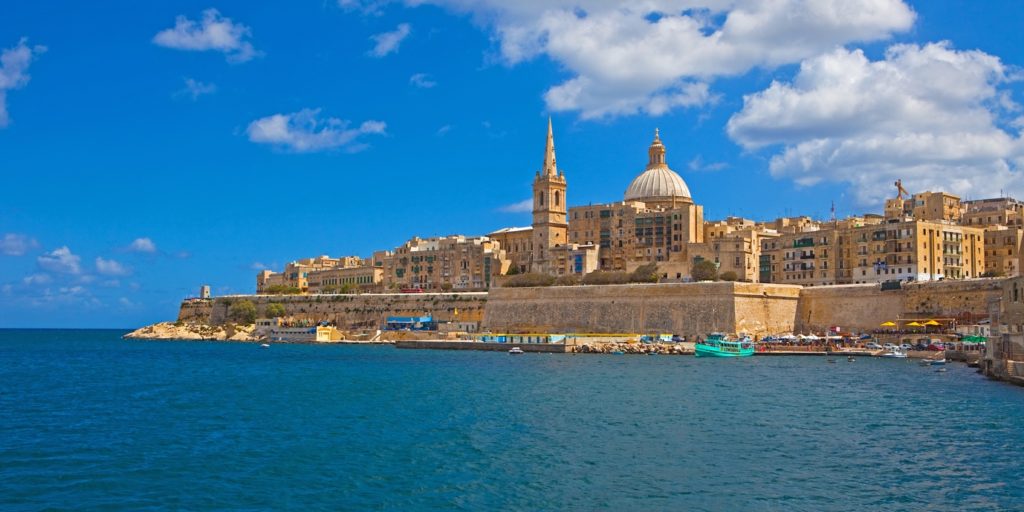
Catholicism is the predominant religion in the Principality of Andorra, with approximately 90 percent of the population identifying as Catholics. Nevertheless, the constitution guarantees religious freedom. With almost 2,000 North African immigrants, Islam represents the second most prevalent religion in the principality. The Catholic Church holds significant social influence of the church in this Catalan principality, which has translated into public support and trust. Additionally, it is worth noting that the income tax rate in Andorra is notably low, at a reduced rate of 10%.
Religion plays a crucial role in ensuring stability within microstates due to their distinct characteristics. The allegiance of the population to their respective principality and its political system is closely linked to the size of the political entity. This correlation is particularly evident in microstates. In contrast, larger democracies with diverse population groups find it challenging to achieve religious unity, given the sheer size and diversity of their populations. However, this is precisely where microstates excel due to their smallness and homogeneity.
Religion serves as a diplomatic stronghold for microstates when navigating the power dynamics imposed by their larger neighboring states. It provides a form of “moral guarantee” in bilateral relationships, especially during discussions on integration processes within the European Union. Religion plays a significant role among the various factors that enable the existence and survival of microstates within the EU. It fosters mutual trust, draws from reassuring historical precedents, and a promises stability for the system in the future.
While Vatican City is distinctly “theocentric” in religious terms, other microstates such as Monaco and Malta do not strictly adhere to the ecclesiastical policies of the Holy See. They exhibit a more liberal, less clerical, and less dogmatic approach. However, these microstates are progressively moving towards greater social integration within the European Union.
The discussion revolves around the preservation of local specificities such as the labour market, administrative regulations, taxes, and more. For microstates, a crucial question arises: how can they maintain their historical religious roots within the Roman Catholic tradition while simultaneously integrating into a vast, secular community of 447 million people?
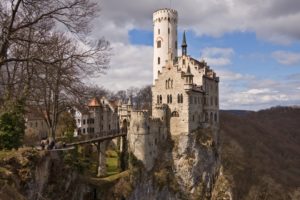
The success of this challenge lies in striking a balance between the local and the global, or the “micro and macro”, referred to as “urbi et orbi.” Microstates function akin to families or small clans within a larger global economic enterprise. Within the private sphere of the family, religion retains its significance. However, in the public and professional realms, its influence diminishes as it is overshadowed by the realities of global economic forces.
Overall, the enduring presence of the religious factor within microstates can be attributed to their perception of themselves as families with relative autonomy within a vast commercial and federal group. The size effect creates a sense of solidarity, serving as an anchor and historical landmark that remains impervious to the changes of the modern human condition.
The peaceful development and integration of microstates typically occurs when historical and religious traditions align harmoniously with political sovereignty. This harmony fosters social tranquility and garners public support for their longstanding systems.

